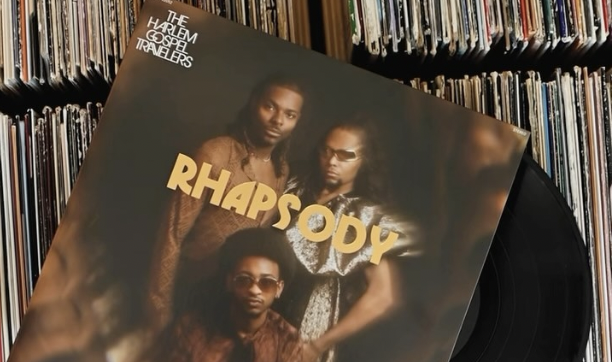The Harlem Gospel Travelers redefine gospel music with their open expression of sexuality, challenging historic homophobia .
Inside the intimate setting of the 229 venue, George Marage commands the audience, “Hands up everyone who loves Jesus.” Obediently, the crowd raises their hands, and with a nod of approval, Marage signals the Harlem Gospel Travelers (HGT) to commence their song “God’s Love.” The fervent voices of the young trio fill the room, showcasing why they are increasingly celebrated as one of the most exciting new acts in US gospel music. They’ve received praise from none other than Elton John, who featured HGT on his Apple Music radio show, and they performed on Joe Biden’s 2020 election campaign trail.
HGT, consisting of George Marage, Ifedayo Gatling, and Dennis Bailey, stands out not only for their musical prowess but also for their open expression of sexuality, a rarity in the gospel scene. “The church can’t keep pretending we don’t exist,” states Gatling, HGT’s forthright member, candidly in the dressing room. “And they need us – the gay community – like we need them.”
“Spreading love,” Marage interjects, while Bailey adds a powerful assertion: “The 21st century is queer. Accept it.”
Historically, gay and lesbian gospel singers have existed in the shadows. Homophobia within the community forced pioneers like Sister Rosetta Tharpe and Marie Knight, rumoured romantic partners, to remain closeted. Similarly, other artists like Alex Bradford, Clara Ward, Little Richard, and Billy Preston had to navigate secrecy. However, HGT’s openness marks a significant shift. Progressive churches have begun to foster inclusion, but many Black Baptist churches still harbour conservative views equating homosexuality with sin.
In a book titled “The Gospel Sound,” authored by Anthony Heilbut in 2013, the Black church was described as evolving into a “citadel of intolerance.” HGT has yet to perform in many Black churches unless they have family connections there. Most of their performances occur in festivals, colleges, and secular venues. Despite their captivating 60s and 70s-inspired gospel sound, which paradoxically is considered too traditional, gospel radio stations have largely shunned them, partly due to their sexuality.
“I know the gospel radio DJs and they are afraid to play us,” Gatling explains. “We don’t sound like a lot of contemporary gospel, which tries to mimic contemporary secular music. I pray for the day when they will play our music and understand the ministry we represent.”
Their hopes are shadowed by cases like Anthony Charles Williams II, better known as Tonex, whose career suffered after he came out in 2009. “The church treated Tonex so badly,” Gatling notes. “When people found out he was queer, they tore him asunder. They called him demonic.”
HGT aims to redefine what gospel can be and the identities of its artists. “A lot of African American people fear their children being queer because it adds another layer of danger, of struggle, to their lives,” Gatling explains. “But, just as you can’t help being Black, you can’t help who you love – so they’ve got to accept this and help them be safe with it.”
Despite these challenges, HGT enjoys performing, garnering admiration from secular audiences as well. Their charisma extends beyond their music, with Gatling donning a purple sequined bodysuit, platform boots, and heart-shaped glasses during their performance at 229.
The trio originally formed as a quartet in 2014, through musician Eli “Paperboy” Reed, who sought a traditional male gospel quartet. Originally from Long Island and Staten Island, Gatling and Marage named the group Harlem Gospel Travelers due to their travel to Harlem for rehearsals. Their 2019 debut album “He’s on Time” garnered significant praise, leading them to continue despite two members leaving. They recruited Bailey and released “Look Up!” in 2022. Their latest album, “Rhapsody,” features selections from the Numero Group label’s Good God! series, reviving vintage gospel songs.
“Gospel music is for everyone,” Gatling declares. “No matter what your background. No matter what your religion.”
HGT has more secular fans than Christian ones, a point that doesn’t trouble them. Influences range from rap to iconic singers like Mariah Carey and Beyoncé, whose album “Renaissance” celebrated the gay Black community. “No more hiding,” Bailey asserts.
Gatling humorously concludes, “Bey, we’re waiting on your call,” suggesting that Beyoncé could well embrace their unique blend of gospel and soul, even if the traditional church doesn’t.




















